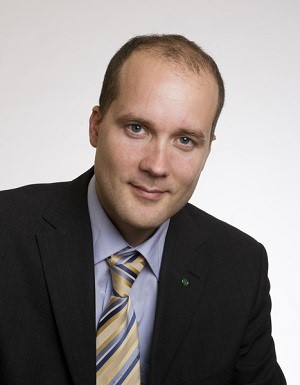United Nations Office on Genocide Prevention and the Responsibility to Protect and Network of Religious and Traditional Peacemakers Sign Memorandum of Understanding
On 1 December 2017, the United Nations Office of Prevention of Genocide and the Responsibility to Protect and the Peacemakers Network signed a memorandum of understanding (MoU). As per the MoU, Convener and Executive Director of the Network, Mr. Antti Pentikäinen, and Director, Dr. Mohamed Elsanousi, will serve as advisors to United Nations Under Secretary-General and Special Adviser on the Prevention of Genocide Mr. Adama Dieng. The role will focus on the implementation of the Plan of Action for Religious Leaders to Prevent Incitement to Violence that Could Lead to Atrocity Crimes.

Antti Pentikäinen.
“Religion is repeatedly used to spread hate and violence. Despite this, religion also has the potential of acting as a source of strength for communities as they seek to find tools for coexistence and reconciliation. Our responsibility is to support the United Nations and the communities healing from violence in utilizing religion and religious actors as a source for positive change”, Mr. Pentikäinen said as describing his new role. Mr. Pentikäinen spoke of his new task at Capitol Hill in his opening remarks at the International Religious Freedom Roundtable.
The Office of Prevention of Genocide and Atrocity Crimes was established in 2004 after the genocides in Srebrenica and Rwanda to:
- Collect existing information, in particular from within the United Nations system, on massive and serious violations of human rights and international humanitarian law of ethnic and racial origin that, if not prevented or halted, might lead to genocide;
- Act as a mechanism of early warning to the Secretary-General, and through him to the Security Council, by bringing to their attention situations that could potentially result in genocide;
- Make recommendations to the Security Council, through the Secretary-General, on actions to prevent or halt genocide; and
- Liaise with the United Nations system on activities for the prevention of genocide and work to enhance the United Nations’ capacity to analyze and manage information regarding genocide or related crimes.
In 2015 the Office on Genocide Prevention and the Responsibility to Protect launched the so-called Fez Process, a two-year process of consultations with religious leaders and actors, supported by Member States, United Nations partners and civil society, led by Mr. Dieng. The Fez process resulted in the Plan of Action for Religious Leaders and Actors to Prevent Incitement to Violence that Could Lead to Atrocity Crimes, which was launched in July 2017 in New York by United Nations Secretary-General António Guterres. The Plan of Action was developed with the support of Network for Religious and Traditional Peacemakers, KAICIID Dialogue Center and World Council of Churches.
“I am very appreciative for the contribution the Network of Religious and Traditional Peacemakers provided to the development of the Plan of Action. The Network provided advice and support throughout the process. I am also particularly thankful to the Network as it had the courage to share my conviction – that at the heart of all religions is the belief in our common humanity and respect for ‘the other’. Together we have succeeded in placing a discussion about the positive power of religion at the heart of the work of the United Nations. I consider this to be a huge achievement,” Mr. Dieng stated during his visit to Finland in September 2017
The appointments will not affect Mr. Pentikäinen and Dr. Elsanousi’s role in the Network of Religious and Traditional Peacemakers.
For more information:
Antti Pentikäinen
antti.pentikainen@peacemakersnetwork.org
Further information:
UN Office on Genocide Prevention: www.un.org/en/genocideprevention
The Plan of Action for Religious Leaders and Actors to Prevent Incitement to Violence that Could Lead to Atrocity Crimes
The full speech by Mr. Adama Dieng at the 70th anniversary celebration of FCA
Examples of collaboration between the Pecemakers Network and the UN Office on the Prevention of Genocide
- United Nations Secretary-General Recognizes the Network’s Role in the Plan of Action for Religious Leaders and Actors
- From Plan to Action – A Roundtable Discussion in Helsinki